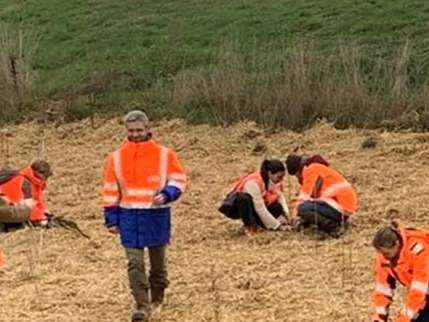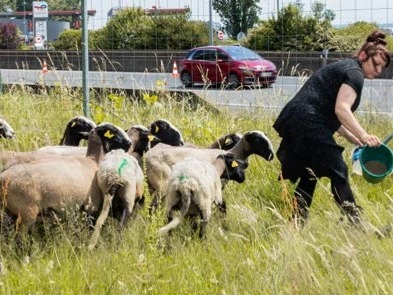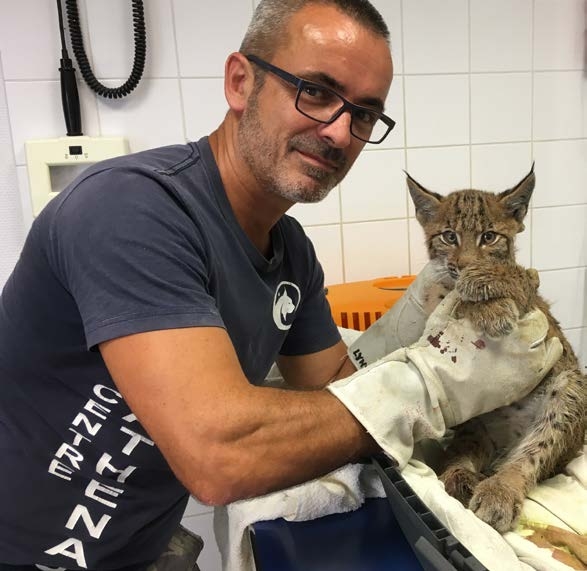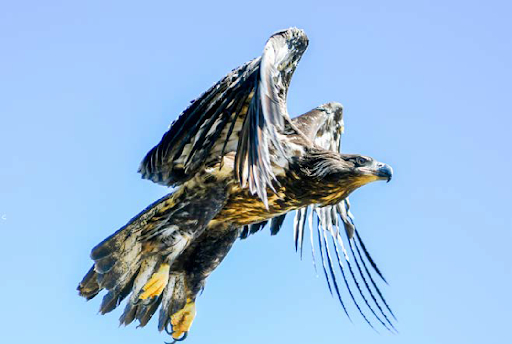Nature and biodiversity
Managing motorways responsibly, while protecting natural habitats.
Our roads connect people travelling through natural environments. We understand the importance of helping to protect these natural environments and support our businesses to reduce their environmental footprint.
APRR’s biodiversity projects
APRR has many projects aimed at protecting or improving conditions to promote local biodiversity. These range from minimising light pollution from roadway lighting that may impact nocturnal animals to using insects rather than herbicides to treat and prevent the spread of ragweed, an invasive exotic flora species.
Plant A’dapt
This project enhances natural environments on motorway roadside areas with the installation of plant ecosystems that are climate change resilient. The project promotes biodiversity, with the additional benefit of storing carbon in soil and wood. Planting along APPR has now reached over 8,000 m3.


Ecograzing
This initiative uses animals, such as sheep, goats and horses to graze the land instead of machinery. Ecograzing is far gentler on the local environment and improves biodiversity in ecograzed areas. Ecograzing now covers over 370 m3 of the APPR network.


Protecting the Boreal Lynx
Support for endangered species is provided through sponsorship of the Athénas Centre, which specialises in the care, rehabilitation and release of wild animals, particularly the Boreal Lynx. Each year, 5,000 animals pass through the doors of the Athénas Centre. For almost 40 years, the Athénas Centre has been welcoming, caring for and releasing wild animals in distress with a view to conserving biodiversity


Approach to biodiversity at our smaller businesses
Despite their smaller footprint, our other businesses also undertake activities to encourage the consideration of nature-related impacts.
Warnow Tunnel has undertaken a tree-planting project with the Rostock City Forestry office where sapling trees were planted in the Rostocker Heide, the largest forest region in the area. The project is particularly important since many of the existing trees in the area will not survive the next 20 years. The new trees were specifically chosen because they are more likely to withstand climate change. The team at Warnow Tunnel continue to care for these trees as they become established.
Bees, other insects, birds and bats play a critical role in maintaining healthy ecosystems and in the growth of food crops. The Dulles Greenway team uses native planting to attract and protect local pollinator species and participates in events such as National Pollinator Week to help local bee populations and native flora to flourish.
Eagle-cam at Dulles Greenway
https://www.dullesgreenway.com/eagle-cam/
The Dulles Greenway Eagle-cam is a partnership project of the Dulles Greenway and Loudoun Wildlife Conservancy. This project relates to conservation, habitat protection, and the dangers that eagles still face in the wild, while also providing a unique educational experience. A permanent live stream camera, viewable through the Dulles Greenway website, enables real-time monitoring of a nest which is home to Bald Eagles on the Dulles Greenway Wetlands. Knowledgeable and friendly moderators help guide the discussion and provide insight in a chat embedded on the page.


